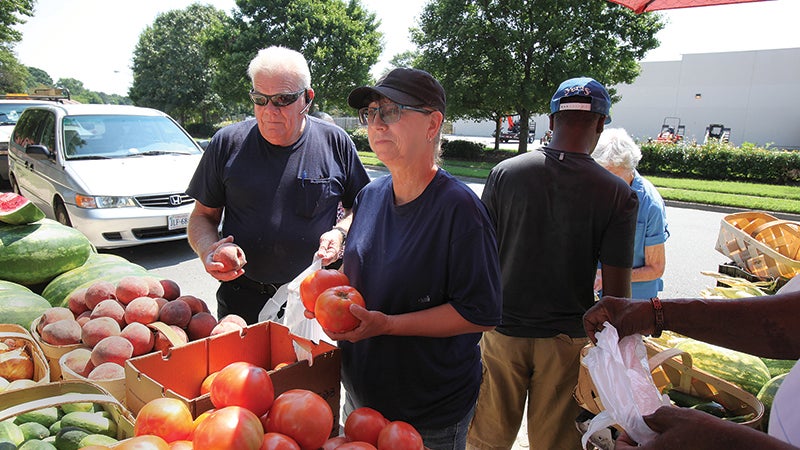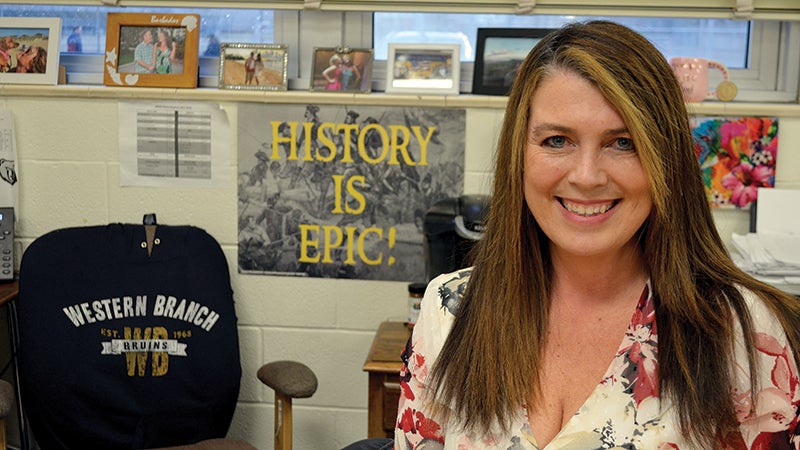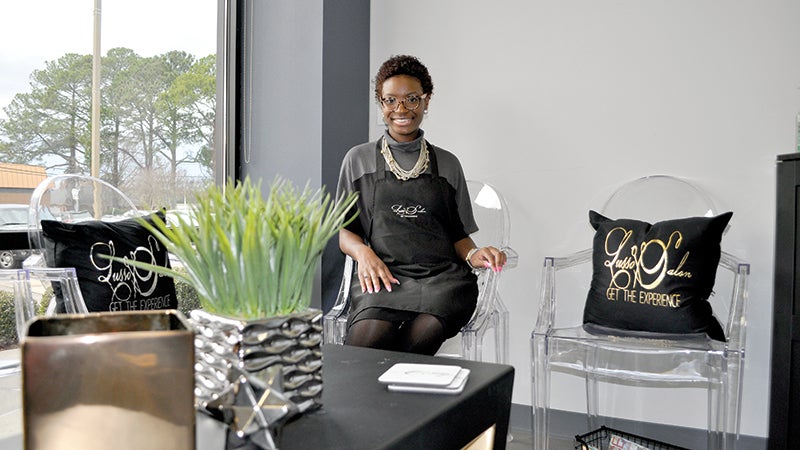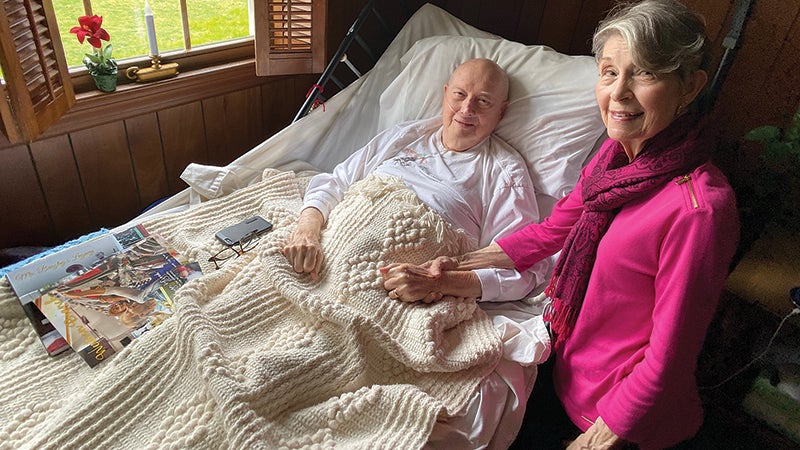Picky about produce
Published 4:17 pm Monday, October 22, 2018

- Billy Bick and Diana Michalski select produce at Hilton Long's produce stand this summer. (Photos by John H. Sheally II)
Story by Phyllis Speidell
Photos by John H. Sheally II
Any Southerner knows the summer lure of velvety-skinned peaches, fresh corn, shiny watermelons and tomatoes or the autumn draw of leafy greens, sweet potatoes and turnips.
Hilton Long understands and caters to folks in the Western Branch area via his mobile market. His white Ford pickup sits on Raintree Court every Tuesday, Thursday and Saturday and on Airline Boulevard near City Park Ave. on Monday, Wednesday and Friday. Fresh produce from three local farmers — or from South Carolina in the off-season — fill the truck bed and display tables.
Long is picky about his produce, quickly discarding a bruised peach or dinged tomato. His customers appreciate his quality checks and return regularly. Often the visit turns into more than a quick stop for produce, flowing into conversations on crops, the weather and life in general.
He grew up on a farm in Winfall, N.C., and he knows his veggies. Years ago, when he had married and had two children, Long realized he needed to re-evaluate his professional future. Jobs were scarce in Carolina then, and his New York relatives invited him north to a more stable life for his growing family. He lived in Brooklyn and commuted to northern New Jersey to work as a printer and color matcher.
Long proves the old adage that you can take the boy off the farm, but you can’t take the farm out of the man. He soon set up a mobile market in the Brownsville section of Brooklyn. After 13 profitable years, he and his son rented a market in the same neighborhood and named it Country Boys’ Fruits and Vegetables. Displaced Southerners and others who craved comfort food flocked to the market.
“We sold country stuff — ham, country sausage, sweet potatoes, pecans and peanuts as well as coons and possums,” Long said. “Folks up there called the possums “poor sams.”
Country Boys’ was a local landmark for 40 years, but Long was getting tired. Two of his six children and numerous of his 12 grandchildren and 20 great-grandchildren were living in Hampton Roads.
“I hated to go back to New York after spending time here, and my wife liked it here too,” Long said.
So in 2000, he said goodbye to the Big Apple, and the Longs moved to a townhouse in Stonebridge.
“I wasn’t going to work when I got here,” he said. “I bought a big screen TV but after a month watching TV in the chair, I was so stiff I couldn’t get up easily, so I decided it was time to get a truck and go back to work.”
Thus the white Ford pickup — and his staff of helpers.
“Working with my grandfather, I’ve learned how to communicate, how to open up, how to save money, how to use money to buy different things, how and where things grow,” said grandson Kenny Johnson, a junior at Nansemond River High School who plans a career in architecture.
Kenny’s younger sidekick, Isiah Jennings, 11, is Long’s great-grandson and a student at Hodges Manor Elementary. According to Long, “Isiah talks more than a radio, and the customers love him.”
Isiah says what he’s learned most from Long is “how to make money.”
“They are learning that farmers put lots of work in making things grow,” Long said.
Many of the customers are regulars, like Jim Yandle of Western Branch who has come by for the last 10 years or more for veggies and conversation with the now 80-year-old Long.
“He carries what folks want, especially in the winter when he sells tons of collard greens and my favorite, turnips,” Yandle said. “His personality and demeanor have a lot to do with his sales. Everybody likes to share a moment with him. We talk a lot about both growing up on farms in North Carolina.”
“It’s a question of who is doing who a favor,” Long said. “I appreciate their buying from us, and the customers appreciate our bringing good food to them.”
On a warm day in August, Billy Bick and Diana Michalski were working near Chesapeake Square when they spotted Long’s truck loaded with produce. They decided to take a break from doing estimates for home improvement jobs in the area to buy some tomatoes. When they realized that they were out of cash, they found the closest bank and returned to buy more produce.
“While we were in the bank,” Michalski said, “three people approached us about giving them estimates on work they needed done.”
She grew up on a farm — the “good life,” as she called it — and is as picky as Long about her produce, but praised his stock as “beautiful — we are having BLTs for dinner tonight!”






